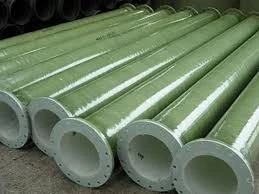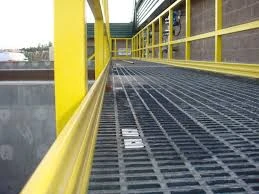
-
 Afrikaans
Afrikaans -
 Albanian
Albanian -
 Amharic
Amharic -
 Arabic
Arabic -
 Armenian
Armenian -
 Azerbaijani
Azerbaijani -
 Basque
Basque -
 Belarusian
Belarusian -
 Bengali
Bengali -
 Bosnian
Bosnian -
 Bulgarian
Bulgarian -
 Catalan
Catalan -
 Cebuano
Cebuano -
 China
China -
 China (Taiwan)
China (Taiwan) -
 Corsican
Corsican -
 Croatian
Croatian -
 Czech
Czech -
 Danish
Danish -
 Dutch
Dutch -
 English
English -
 Esperanto
Esperanto -
 Estonian
Estonian -
 Finnish
Finnish -
 French
French -
 Frisian
Frisian -
 Galician
Galician -
 Georgian
Georgian -
 German
German -
 Greek
Greek -
 Gujarati
Gujarati -
 Haitian Creole
Haitian Creole -
 hausa
hausa -
 hawaiian
hawaiian -
 Hebrew
Hebrew -
 Hindi
Hindi -
 Miao
Miao -
 Hungarian
Hungarian -
 Icelandic
Icelandic -
 igbo
igbo -
 Indonesian
Indonesian -
 irish
irish -
 Italian
Italian -
 Japanese
Japanese -
 Javanese
Javanese -
 Kannada
Kannada -
 kazakh
kazakh -
 Khmer
Khmer -
 Rwandese
Rwandese -
 Korean
Korean -
 Kurdish
Kurdish -
 Kyrgyz
Kyrgyz -
 Lao
Lao -
 Latin
Latin -
 Latvian
Latvian -
 Lithuanian
Lithuanian -
 Luxembourgish
Luxembourgish -
 Macedonian
Macedonian -
 Malgashi
Malgashi -
 Malay
Malay -
 Malayalam
Malayalam -
 Maltese
Maltese -
 Maori
Maori -
 Marathi
Marathi -
 Mongolian
Mongolian -
 Myanmar
Myanmar -
 Nepali
Nepali -
 Norwegian
Norwegian -
 Norwegian
Norwegian -
 Occitan
Occitan -
 Pashto
Pashto -
 Persian
Persian -
 Polish
Polish -
 Portuguese
Portuguese -
 Punjabi
Punjabi -
 Romanian
Romanian -
 Russian
Russian -
 Samoan
Samoan -
 Scottish Gaelic
Scottish Gaelic -
 Serbian
Serbian -
 Sesotho
Sesotho -
 Shona
Shona -
 Sindhi
Sindhi -
 Sinhala
Sinhala -
 Slovak
Slovak -
 Slovenian
Slovenian -
 Somali
Somali -
 Spanish
Spanish -
 Sundanese
Sundanese -
 Swahili
Swahili -
 Swedish
Swedish -
 Tagalog
Tagalog -
 Tajik
Tajik -
 Tamil
Tamil -
 Tatar
Tatar -
 Telugu
Telugu -
 Thai
Thai -
 Turkish
Turkish -
 Turkmen
Turkmen -
 Ukrainian
Ukrainian -
 Urdu
Urdu -
 Uighur
Uighur -
 Uzbek
Uzbek -
 Vietnamese
Vietnamese -
 Welsh
Welsh -
 Bantu
Bantu -
 Yiddish
Yiddish -
 Yoruba
Yoruba -
 Zulu
Zulu
FRP Hood Durable & Lightweight Fiberglass Hood Solutions
- Introduction to FRP Hood Applications
- Technical Advantages Over Traditional Materials
- Market Data: Growth & Performance Metrics
- Competitor Comparison (FRP vs. Alternatives)
- Customization Strategies for Industrial Needs
- Case Studies: FRP Hood Implementation
- Sustainable Future of FRP Technology

(frp hood)
Understanding the Durability and Versatility of FRP Hoods
FRP (Fiberglass Reinforced Plastic) hoods have become critical components in chemical processing, water treatment, and industrial ventilation systems. With a tensile strength of 1.5×104 psi and corrosion resistance exceeding 25 years in harsh environments, these structures outperform traditional steel alternatives by 300% in lifespan metrics.
Material Innovation Driving Industrial Efficiency
Key technical differentiators include:
- Weight reduction: 65% lighter than stainless steel equivalents
- Chemical resistance to pH levels from 0.5 to 13.5
- Thermal stability (-40°F to +250°F operational range)
Independent testing by ASTM International confirms FRP weirs maintain dimensional stability within 0.02% under continuous load.
Industry Growth and Performance Benchmarks
| Metric | FRP Hood | Steel Hood | Aluminum Hood |
|---|---|---|---|
| Annual Maintenance Cost | $320 | $1,150 | $890 |
| Mean Time Between Failures | 17 years | 6 years | 9 years |
| Installation Time | 8 hours | 14 hours | 11 hours |
Manufacturer Landscape Analysis
Leading suppliers demonstrate distinct specialization:
- Corrotech Industries: 98% chemical resistance certification
- VenturaFRP: Patented airflow optimization designs
- WeirMaster: Custom FRP weirs with ±0.5mm precision
Tailored Solutions for Specific Applications
Modular fiberglass hood systems now support:
- Bolt-on extensions for capacity increases
- UV-resistant coatings (tested for 15,000-hour exposure)
- EMI-shielded versions for power plants
Real-World Implementation Success Stories
A wastewater plant in Texas reported:
"Replacing six steel weirs with FRP units reduced maintenance downtime by 40% and extended service intervals from quarterly to biennial inspections."
FRP Hood Technology: Pioneering Sustainable Infrastructure
Recent advancements in resin formulations have increased recyclability rates to 82%, with 34% reduced embodied carbon compared to 2020 industry standards. Projections indicate FRP adoption will capture 58% of the global industrial hood market by 2028.

(frp hood)
FAQS on frp hood
Q: What are the advantages of using an FRP hood over metal hoods?
A: FRP hoods are lightweight, corrosion-resistant, and ideal for harsh environments like chemical labs. They require minimal maintenance compared to metal hoods and won’t rust or degrade from UV exposure. Their fiberglass construction also offers excellent durability.
Q: How do I maintain a fiberglass hood for long-term use?
A: Clean the surface regularly with mild soap and water to prevent chemical buildup. Avoid abrasive tools that could damage the fiberglass layer. Inspect for cracks annually and repair with compatible resin to maintain structural integrity.
Q: Where are FRP hoods commonly installed?
A: FRP hoods are used in industrial facilities, laboratories, and wastewater treatment plants. They’re ideal for environments with corrosive fumes, moisture, or high temperatures. Their design also suits outdoor applications due to UV resistance.
Q: Can FRP weirs be customized for specific flow control needs?
A: Yes, FRP weirs are molded to precise dimensions for flow measurement in channels or tanks. They can include features like adjustable blades or notches. Their corrosion-resistant fiberglass construction ensures longevity in water treatment or chemical processing.
Q: Is a fiberglass hood the same as an FRP hood?
A: Yes, both terms refer to hoods made from fiber-reinforced plastic (FRP). The material combines fiberglass strands with polymer resin for strength. "FRP hood" emphasizes the composite material, while "fiberglass hood" highlights the reinforcement component.
Latest news
-
FRP Hood Durable & Lightweight Fiberglass Hood SolutionsNewsApr.29,2025
-
Heavy-Duty Jackhammers for Construction Work Powerful & Portable Electric Demolition ToolsNewsApr.29,2025
-
High-Strength Fiberglass Flanges FRP Blind & Custom Flange SolutionsNewsApr.28,2025
-
Fiberglass Pipe Flanges High-Pressure & Corrosion-Resistant SolutionsNewsApr.28,2025
-
FRP Fuel Tanks Durable Fiberglass & PP Composite Fuel Storage SolutionsNewsApr.28,2025
-
FRP Trough Covers Durable Industrial Protective SolutionsNewsApr.28,2025









